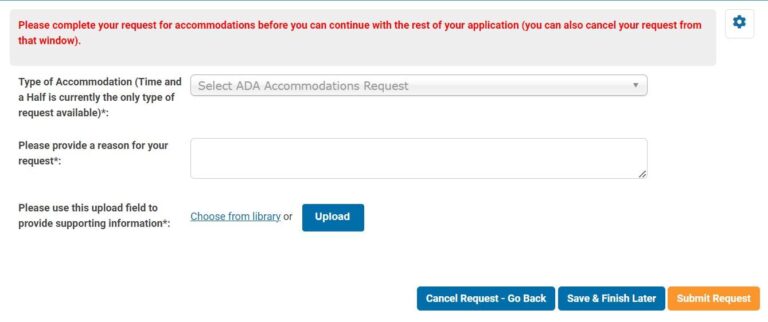California Attorney General Rob Bonta has filed 31 criminal charges against US Framing West and several of its employees, accusing the company of extensive wage theft and tax evasion. The Department of Justice announced the charges as part of an ongoing effort to hold employers accountable for labor violations and protect workers’ rights across the state. This high-profile case highlights the state’s commitment to cracking down on financial crimes that undermine both employees and public tax systems.
Attorney General Bonta Unveils Extensive Criminal Charges Targeting US Framing West and Staff
California Attorney General Rob Bonta has announced a sweeping indictment against US Framing West and several of its employees, levying a total of 31 criminal charges. The allegations center around systematic wage theft and blatant tax evasion schemes that have impacted countless workers and deprived the state of essential tax revenues. This case represents one of the most comprehensive actions taken by the Department of Justice to date, underscoring California’s commitment to enforcing labor laws and protecting employees’ rights.
The charges include:
- Failure to pay proper wages to hundreds of workers
- Deliberate underreporting of taxable income
- Conspiracy among staff members to manipulate payroll records
- Violation of California labor and tax codes
Prosecutors are emphasizing that these violations not only harm individual employees but also undermine fair competition in the construction industry. The Department of Justice is pursuing stringent legal penalties to hold those responsible accountable and deter future misconduct within the sector.
Detailed Allegations Include Wage Theft and Tax Evasion Practices Under Investigation
The charges leveled against US Framing West and several of its key employees stem from a meticulous investigation into widespread wage theft and deliberate tax evasion schemes. According to the authorities, the company systematically underreported employee hours, denying workers rightful pay and overtime compensation. Internal documents and whistleblower testimonies reveal a pattern of falsified payroll records that not only impacted hundreds of workers but also undermined fair labor practices statewide.
Furthermore, investigators uncovered that the company engaged in complex tactics to conceal taxable income from state and federal agencies. These methods included inflating business expenses and creating fictitious vendor invoices, significantly reducing the financial transparency required under tax laws. The ongoing probe outlined the following specific violations:
- Failure to pay lawful minimum wages and overtime pay
- Manipulation of payroll data to evade wage payments
- Intentional underreporting of business earnings to tax authorities
- Submission of fraudulent tax returns containing fictitious deductions
| Violation Type | Estimated Impact | Legal Consequence |
|---|---|---|
| Wage Theft | $1.2 Million Unpaid Wages | Criminal Prosecution, Restitution |
| Tax Evasion | $900,000 Unpaid Taxes | Fines, Imprisonment Possibility |
Impact on Workers and Financial Repercussions for the Construction Industry Explored
The allegations against US Framing West reveal a stark reality for workers caught in the crossfire of corporate malfeasance. Employees, many of whom rely on timely wages to meet basic needs, reportedly suffered significant financial hardship due to systemic wage theft. This not only affects their immediate livelihood but also undermines workplace morale and trust within the industry. Key impacts on workers include:
- Unpaid or underpaid wages disrupting personal financial stability
- Exposure to tax evasion practices jeopardizing future retirement and social security benefits
- Decreased access to earned benefits such as overtime pay and workers’ compensation
For the construction industry at large, these charges send ripples through financial structures and business reputations. The long-term repercussions could include increased regulatory scrutiny and tightened compliance mandates, potentially raising operational costs. Contractors may face harsher penalties and insurance premiums, while the stigma attached to wage theft scandals could deter qualified labor and investors. The financial repercussions are summarized below:
| Impact Area | Potential Effect |
|---|---|
| Regulatory Compliance | Stricter audits and frequent inspections |
| Operational Costs | Increased legal and insurance expenditures |
| Industry Reputation | Eroded public and investor confidence |
Recommendations for Businesses to Enhance Compliance and Prevent Future Violations
To fortify adherence to legal standards and mitigate risks associated with wage theft and tax evasion, businesses should implement rigorous internal controls. Establishing transparent payroll processes and frequent audits can significantly reduce the chance of inadvertent violations. Additionally, training programs focused on ethical practices and compliance requirements for management and staff are essential to foster a culture of accountability. Employers must prioritize clear documentation of employee hours and compensation to ensure accuracy and legal compliance.
Regular collaboration with legal and financial experts can help organizations stay updated on evolving regulations. Companies are encouraged to adopt the following best practices:
- Conduct internal compliance reviews quarterly to identify and address potential issues early;
- Utilize automated systems to track payroll data and tax filings;
- Develop whistleblower policies that protect employees reporting misconduct;
- Maintain open communication channels between HR, accounting, and legal departments for swift resolution of concerns.
Insights and Conclusions
The announcement by Attorney General Rob Bonta marks a significant step in addressing corporate misconduct in California. With 31 criminal charges filed against US Framing West and its employees, the case underscores the state’s commitment to combating wage theft and tax evasion. As the legal process moves forward, it serves as a reminder to employers of the serious consequences of violating labor and tax laws, reinforcing California’s dedication to protecting workers and upholding justice.




